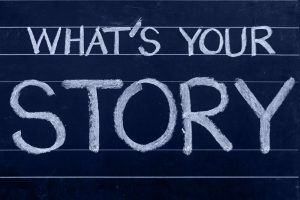Personal Statement.
These two words strike fear and anxiety in the hearts of many students applying to colleges and universities in the United States. In only 650 words (the word limit for the Common Application Personal Statement), students must highlight eighteen years of challenges, successes, failures, interests, and other miscellaneous experiences…AND prove to their dream schools why they are worthy of an offer.

Now it goes without saying that a fantastic Personal Statement will not make up for poor grades and standardized test scores; but nonetheless, this essay is a fundamentally important opportunity for students to give their application “personality.” It addresses a key question: Who am I beyond the numbers and lists that seem to define the college application?
Start Early, Revise Often
And so, with the high pressure of answering such a big question, it’s vital that our students start early. This year at BASIS International School Shenzhen we will begin with an 11th grade College Counseling Workshop the last week in May–45 minutes for 5 days with at least 3 days used exclusively for essay brainstorming. During this workshop, students begin writing in a few different ways:
- If they don’t know what they want to write about, then they can simply write their story down. It doesn’t need to be perfect; it can have random trains of thought or incomplete sentences, lack of introduction or conclusion, etc. This is just a first draft, after all, and if my experience tells me anything, it’s that no engaging, thoughtful Personal Statement can be finished in less than five drafts (many can exceed 10 versions!).
- For students who are unsure of what they want to write about, I usually tell them to pick 4-5 random topics that mean something to them and write about each. From a meaningful childhood experience, to the importance of their relationship with a family member, from a hobby they can’t live without to their favorite drink/food. The “thing” is not important; it’s the why they’ve chosen that particular thing and the what it represents about who they are that’s essential.
- When a student needs just a bit more direction, I offer guiding questions. While the Common Application offers seven essay prompts for students to write to, it’s not always a good idea to attempt answers to these questions at first (especially for students having trouble coming up with a topic to write about), as these questions are too broad in nature. Instead, counselors could consider asking questions that elicit tangible responses (i.e. What is your best/worst childhood memory?)
Whether it’s a bullet-point outline that maps out an essay, an 800-word rambling mess of a meaningful story, an introduction (and only an introduction), or four paragraphs that talk briefly about four separate topics, students just need to put words on the page. Once those words have materialized, students can begin the long, arduous process of revision.
Putting it into Practice

When our newly minted seniors enter our three week Summer Writing Workshop in the middle of July, they will focus again on the Personal Statement. We will talk to each of them, one-on-one, about their topics. In addition to asking a whole lot of “why” questions and pushing for clearer explanation of ideas, key pieces of advice may include: Add more personal examples and anecdotes to “show” and not “tell,” change up the introduction to better “hook” your reader, and/or be more open to showing the weakness in your character prior to a momentous learning experience. I might also encourage a student to think of alternative topics if their essay isn’t quite highlighting the strongest parts of their personality and experiences. And it is only because we have students begin writing so early that this process of honing in on the right topic and taking the time to really perfect it is possible.
By the beginning of September, and with considerable help from the 45 minutes afforded to them by their daily College Counseling Course, our seniors should be finalizing their Personal Statements. Additional writing content created via Personal Statement brainstorming and revision will never be wasted; often, it can be utilized to build the foundation of the other essays required for certain schools–like academic interest essays, extracurricular activity essays, community-centric essay, and/or miscellaneous creative essays.
Ultimately, the Personal Statement will be only as good as the amount of effort a student applies to crafting it. If a student is willing to dig deep within themselves, be vulnerable, and bravely draw out their story; if they are constantly revising and editing after constructive criticism and advice, then that student’s essay will always be worth reading.
Marissa Arvidson is a college counselor at BASIS International School Shenzhen
View our previous post on college counseling with BASIS International Schools.
View job description and apply for the College Counselor position on our careers site.